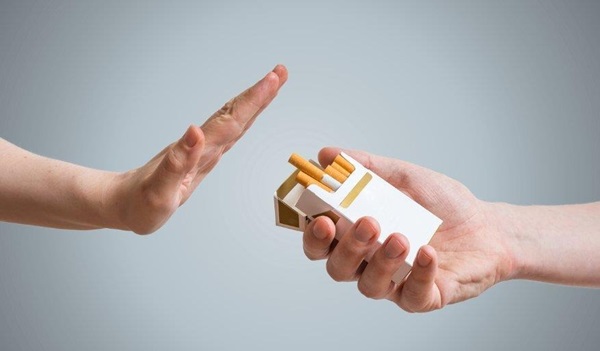High blood pressure also known as hypertension is a common condition that affects the body’s arteries. People with high blood pressure mean that the force of their blood against the walls of your arteries is too strong all the time which makes hearts difficult to pump blood. High blood pressure is called the “silent killer” because it typically has no symptoms until significant damage has been done to the heart and arteries. It can cause life-threatening conditions such as heart disease, stroke, and kidney failure, therefore managing blood pressure is crucial for maintaining overall health.
Fortunately, there are several effective ways to help lower blood pressure and promote a healthier lifestyle. In this article, we will explore 15 practical and evidence-based strategies that help in reducing blood pressure, ranging from dietary adjustments and exercise routines to stress management techniques and lifestyle changes.
Regular Exercise
According to research, engaging in both aerobic (like jogging or swimming) and resistance (like weightlifting) exercises can help delay or manage blood pressure. After doing exercise, blood pressure levels may remain lower for up to a day. Regular exercise increases your heart and breathing rates which leads your heart to get stronger and pump with less effort. As a result, it decreases the pressure on your arteries, thus lowering your blood pressure.

You can do some activities effortlessly to manage your high blood pressure such as,
- using the stairs
- walking instead of driving
- doing household chores
- gardening
- going for a bike ride
- playing a team sport
Reduce Weight
Being overweight can add stress to your heart and the cardiovascular system, which can lead to higher blood pressure. Individuals who are overweight or obese can see notable decreases in blood pressure even with a small drop in weight. On average, for every kilogram of weight lost, there’s about a 1 mmHg drop in systolic blood pressure. To manage weight, you must eat fewer calories and exercise more.
More Potassium, Reduce The Intake Of Salt
Increasing the intake of potassium and reducing the intake of salt can be beneficial to lower your blood pressure. High consumption can lead to an increased risk of high blood pressure, whereas reducing salt intake has the opposite effect. Although experts aren’t entirely sure why this occurs, factors such as water retention and inflammation in blood vessels may play a role.
Potassium aids in salt elimination from the body and helps relax blood vessels, thereby reducing tension. You can consume foods like potatoes, tomatoes, spinach, yogurt, and milk that are rich in potassium. However, high potassium intake is not beneficial for kidney patients, so consult with your doctor before increasing your potassium intake.
Avoid Processed Food
Processed foods often contain high salt, added sugar, and unhealthy fats which can contribute to weight gain and ultimately, high blood pressure Some examples of processed foods include processed meats, various fast foods, fried foods, and processed snacks.
Moreover, foods labeled as “low fat” may contain high levels of salt and sugar to compensate for the loss of fat. Avoiding the consumption of processed can lead to consuming less salt, sugar, and refined carbohydrates, all of which can help lower blood pressure.
Stop Smoking
Avoiding smoking is important for your overall health including managing your blood pressure. In the long term, the chemicals found in tobacco can increase your blood pressure by damaging the walls of your blood vessels, promoting inflammation, and narrowing your arteries. These changes may lead to hardened arteries, leading to increased blood pressure.

Moreover, even if you are around secondhand smoke, the chemicals in tobacco can affect your blood vessels. According to the study, nonsmokers living in areas with smoke-free environments such as restaurants, bars, and workplaces, tend to have lower blood pressure compared to those in areas without smoke-free policies.
Also read, What is Somniphobia? Learn about its Causes, Symptoms, and Treatment
Have A Bite Of Some Dark Chocolate
Incorporating some dark chocolate into your diet can be beneficial as it typically contains 70–85% cacao. Cocao is rich in flavonoids which are antioxidants that might help lower blood pressure by promoting the dilation, or widening, of your blood vessels.
However, while indulging in a bit of dark chocolate is unlikely to cause harm, the typical amount consumed per day might not provide enough flavonoids to yield health benefits.
Avoid Drinking Alcohol
According to research consuming 30 grams or more of alcohol can elevate heart rate for up to 24 hours. In the beginning, blood pressure tends to decrease within the first 12 hours but then rises.

As per the American Heart Association guidance, indulging in large amounts of red wine isn’t advantageous for heart health despite the hype. Avoiding or lowering the intake of alcohol is beneficial for high blood pressure patients.
Lower Your Caffeine Intake
People who usually consume 1–3 cups of coffee per day are unlikely to experience a rise in blood pressure. Individuals who usually drink 1 to 3 cups of coffee per day are unlikely to see a rise in blood pressure. However, drinking too much coffee or even a small amount if you’re not accustomed to it might raise your blood pressure.
Similarly, high caffeine energy can also increase blood pressure and elevate the risk of cardiovascular problems. So the experts have suggested lowering the consumption of caffeine to reduce the risk of increasing blood pressure levels.
Drink Adequate Amount Of Water
Drinking an adequate amount of water can be beneficial for your overall health and might help reduce blood pressure. According to some research, consuming 550 milliliters (ml) of water within 2 hours of waking up and another 550 ml 2 hours before bedtime may lower blood pressure. Staying well-hydrated supports your body’s functions and can contribute to better cardiovascular health.

